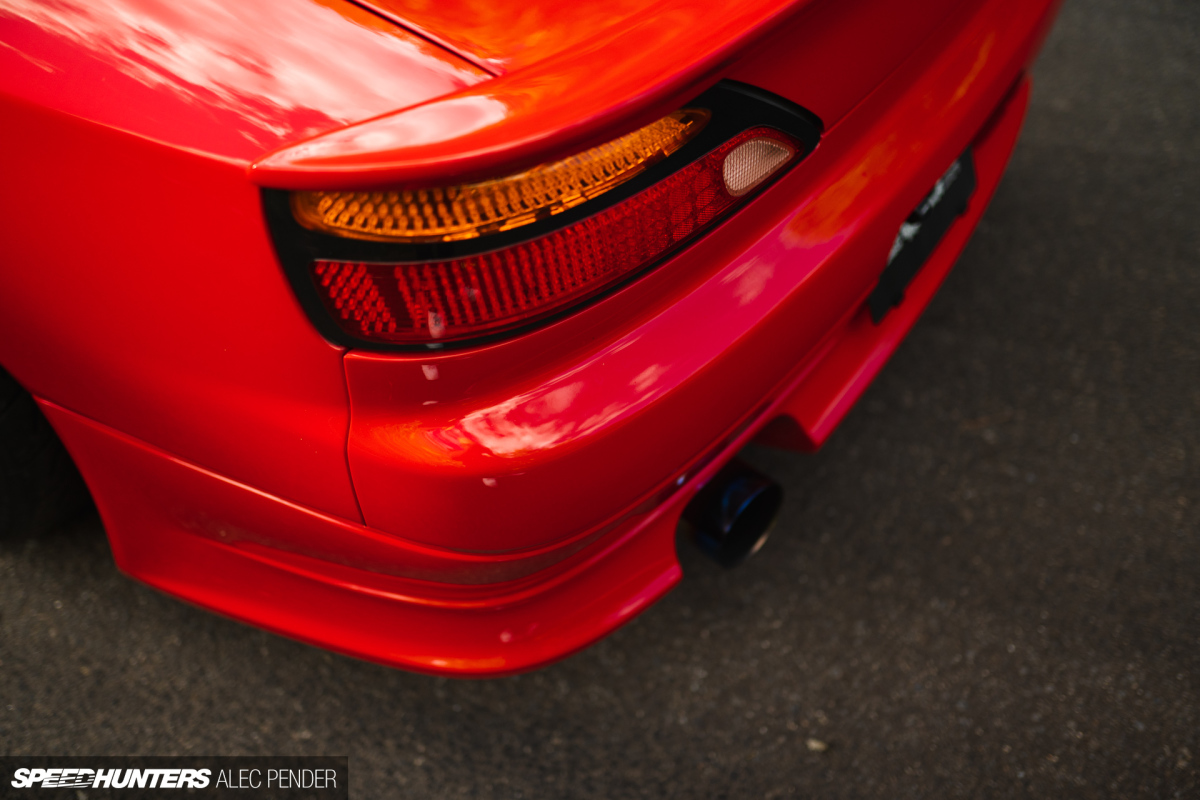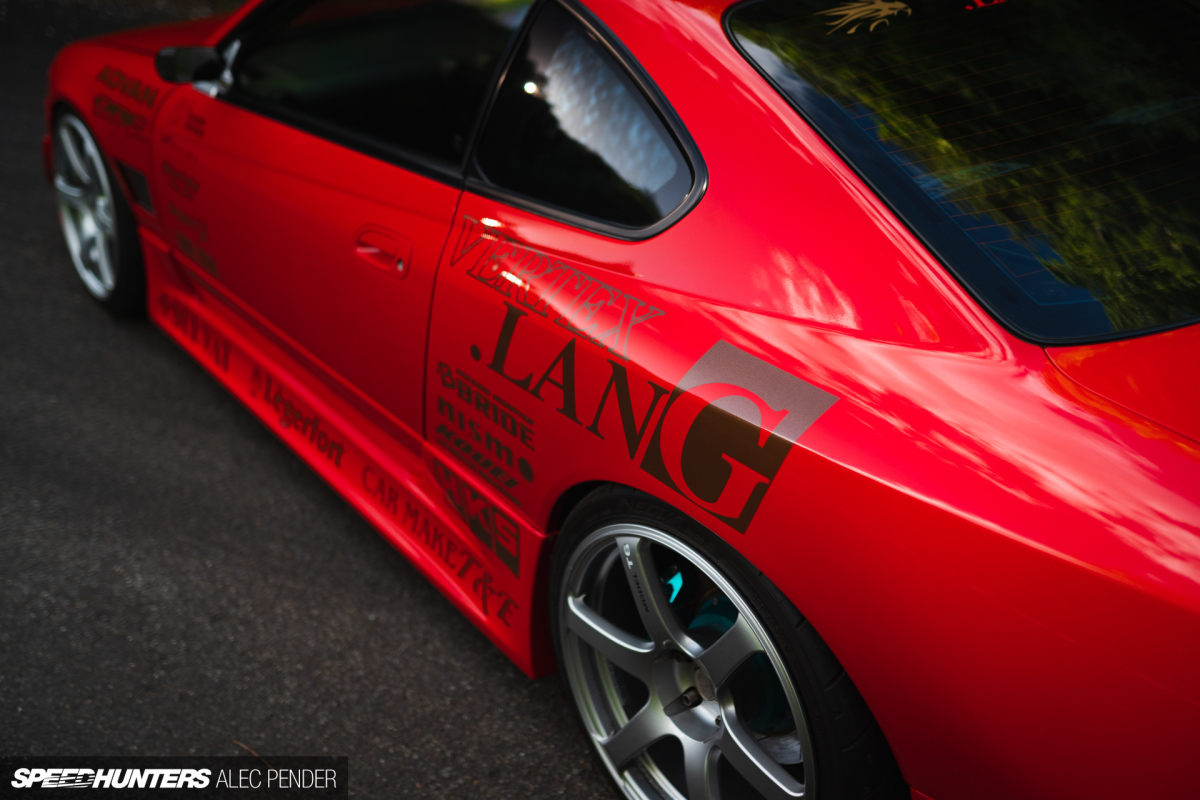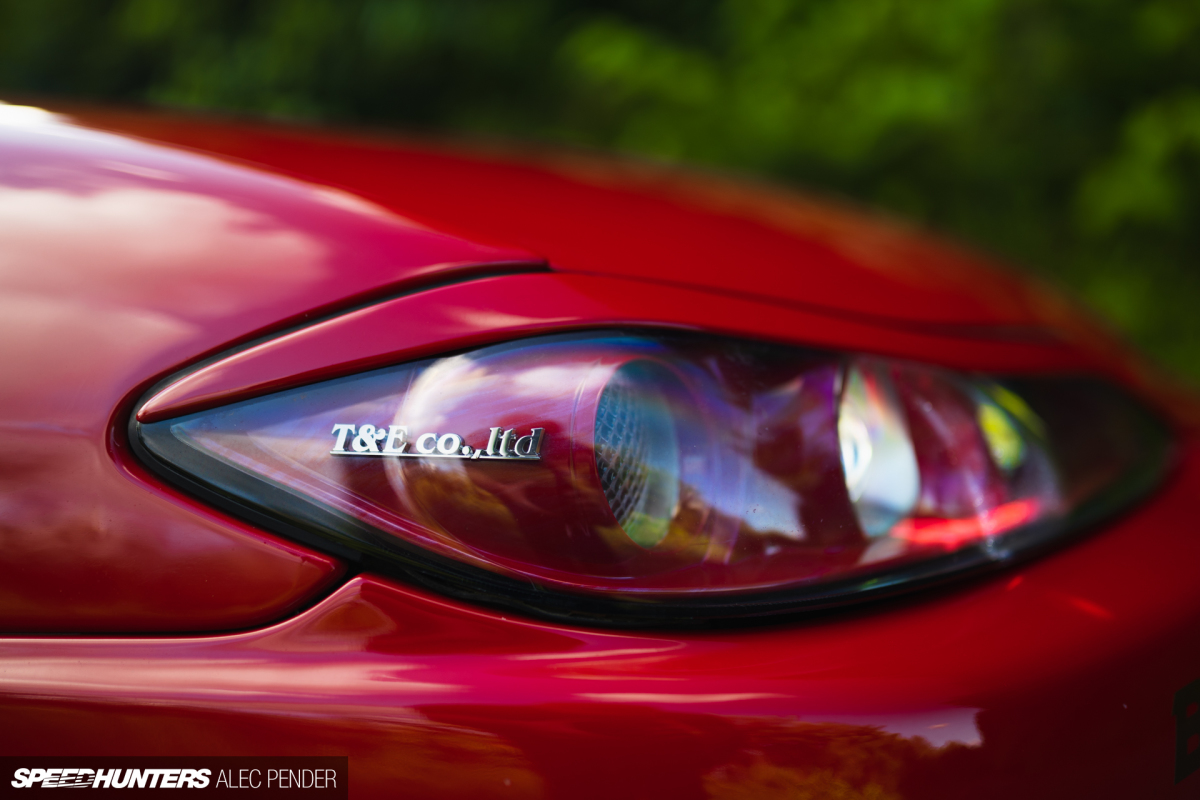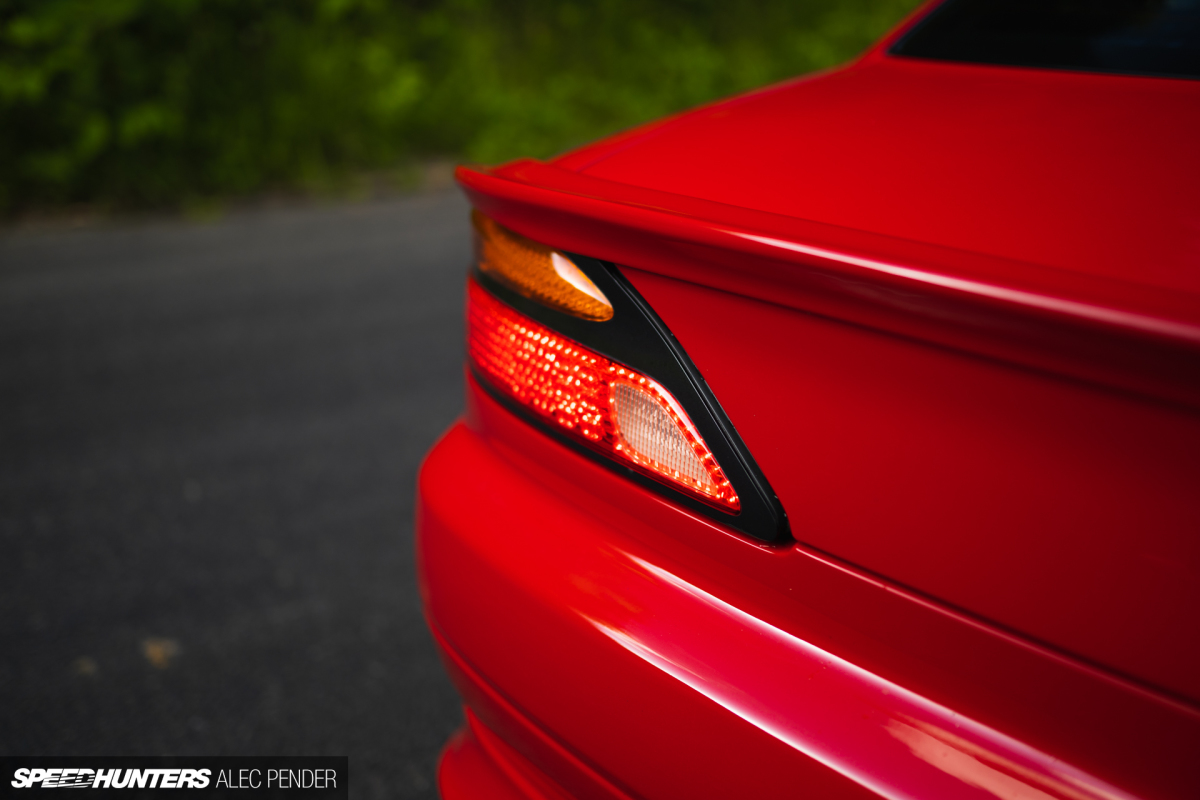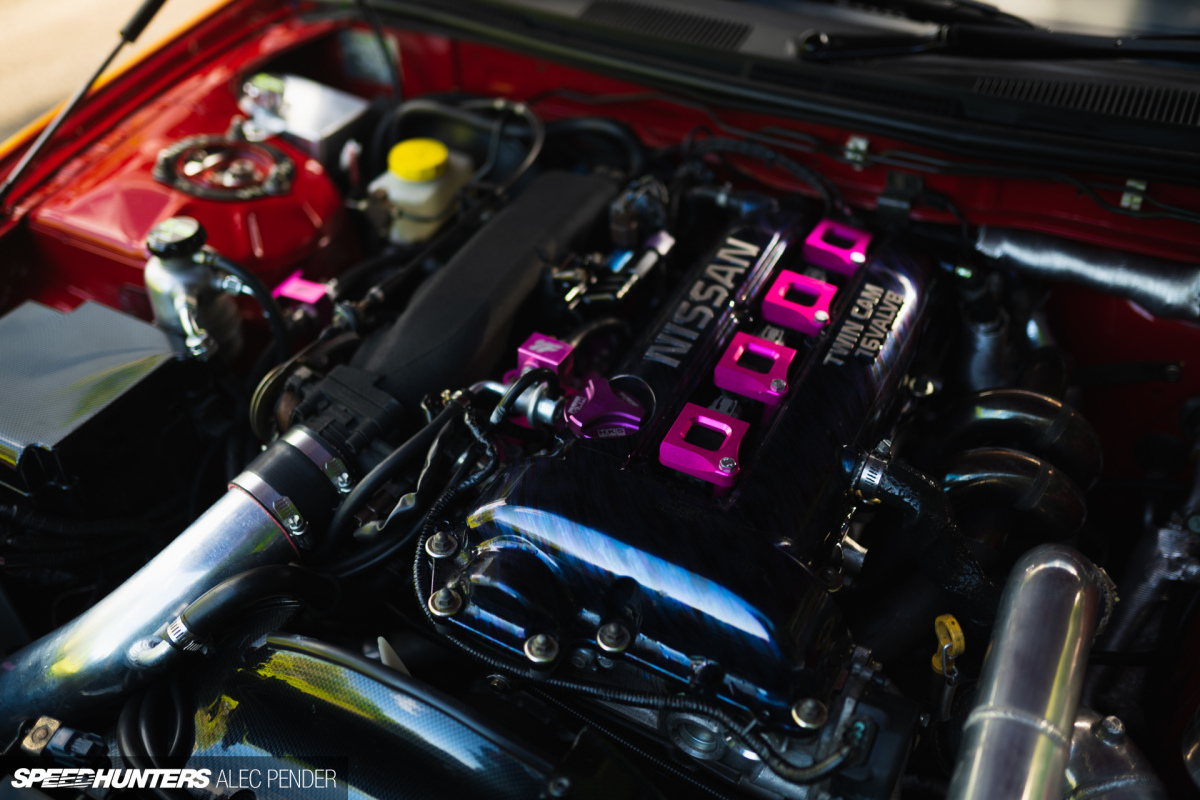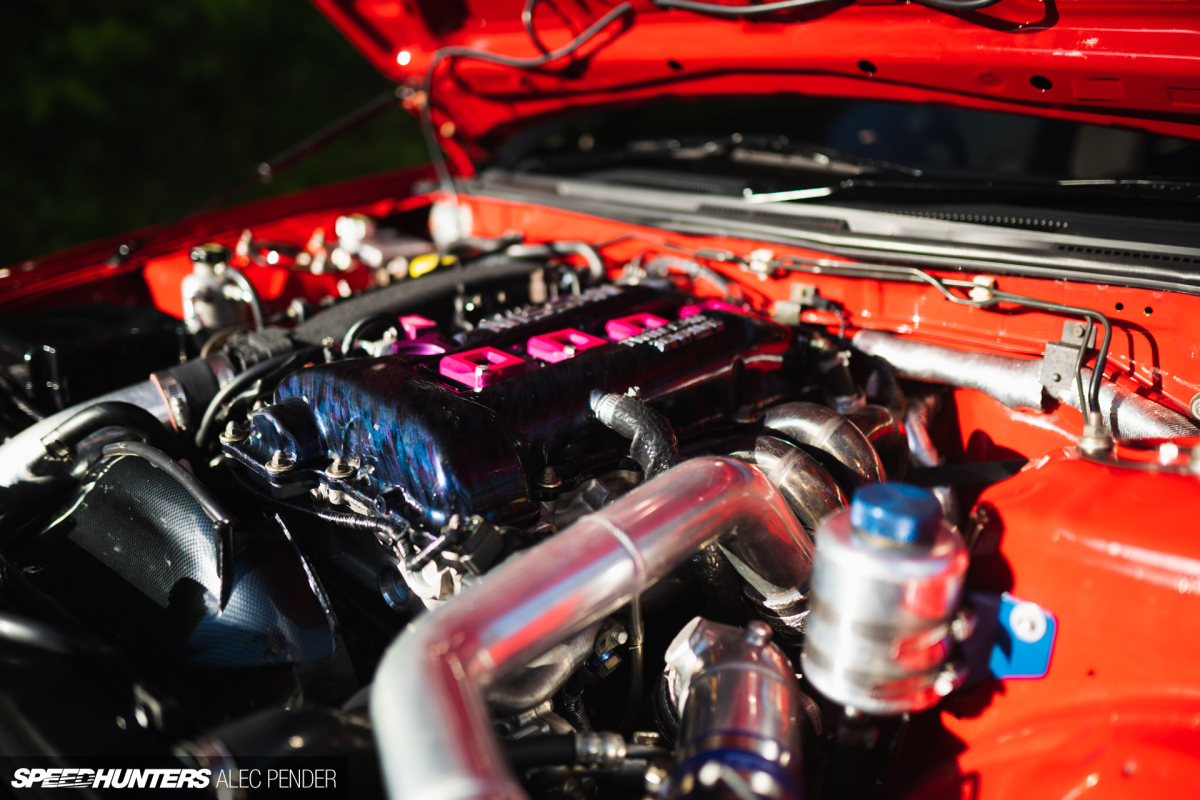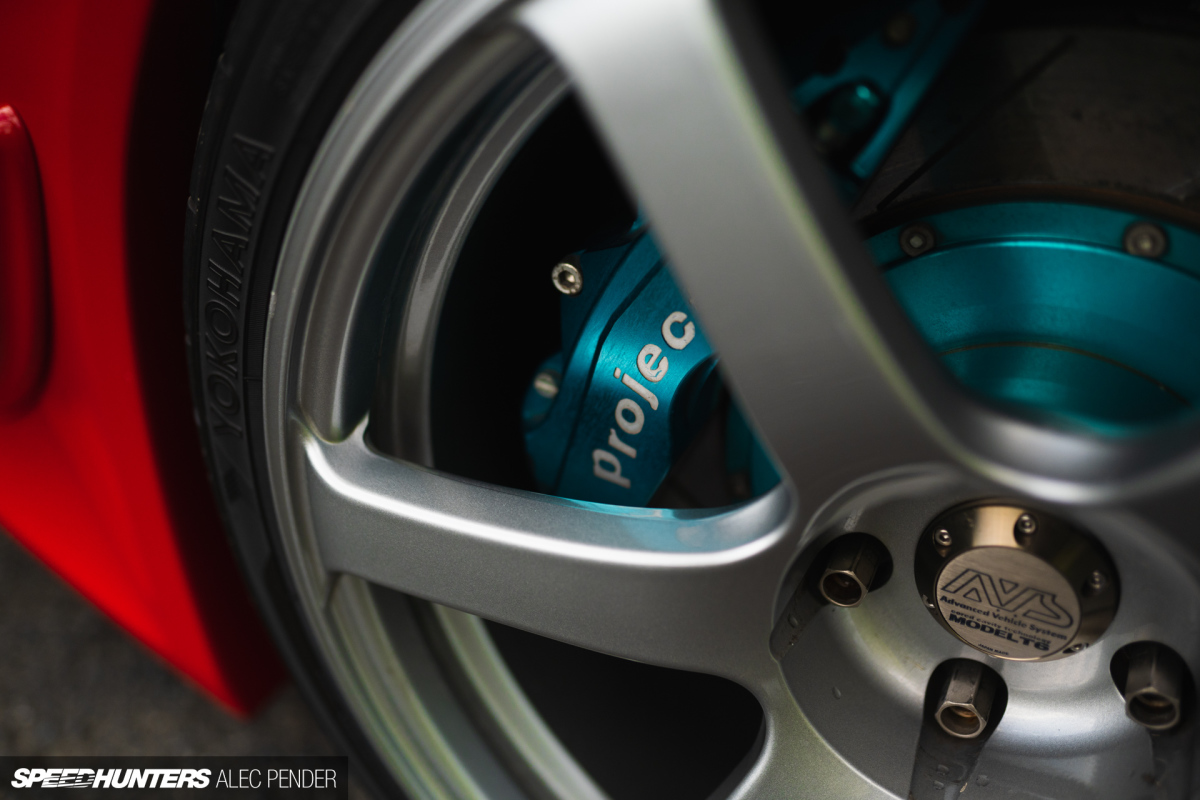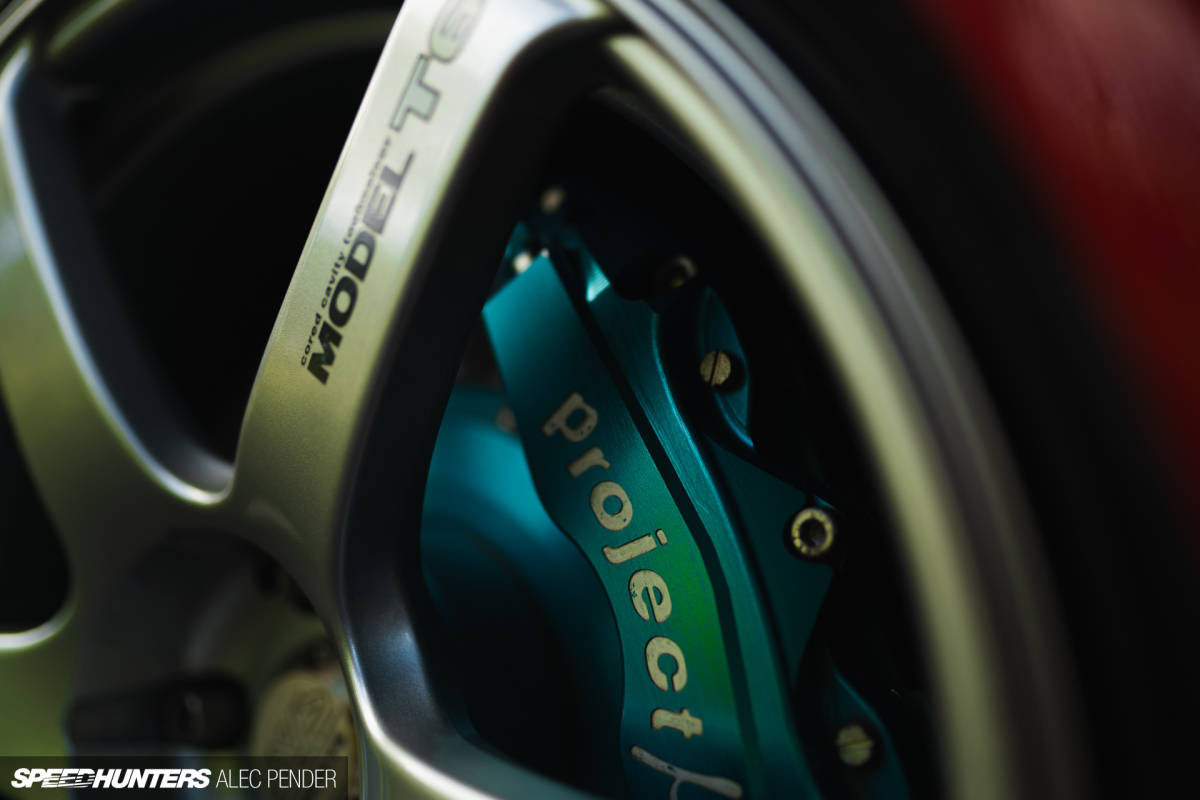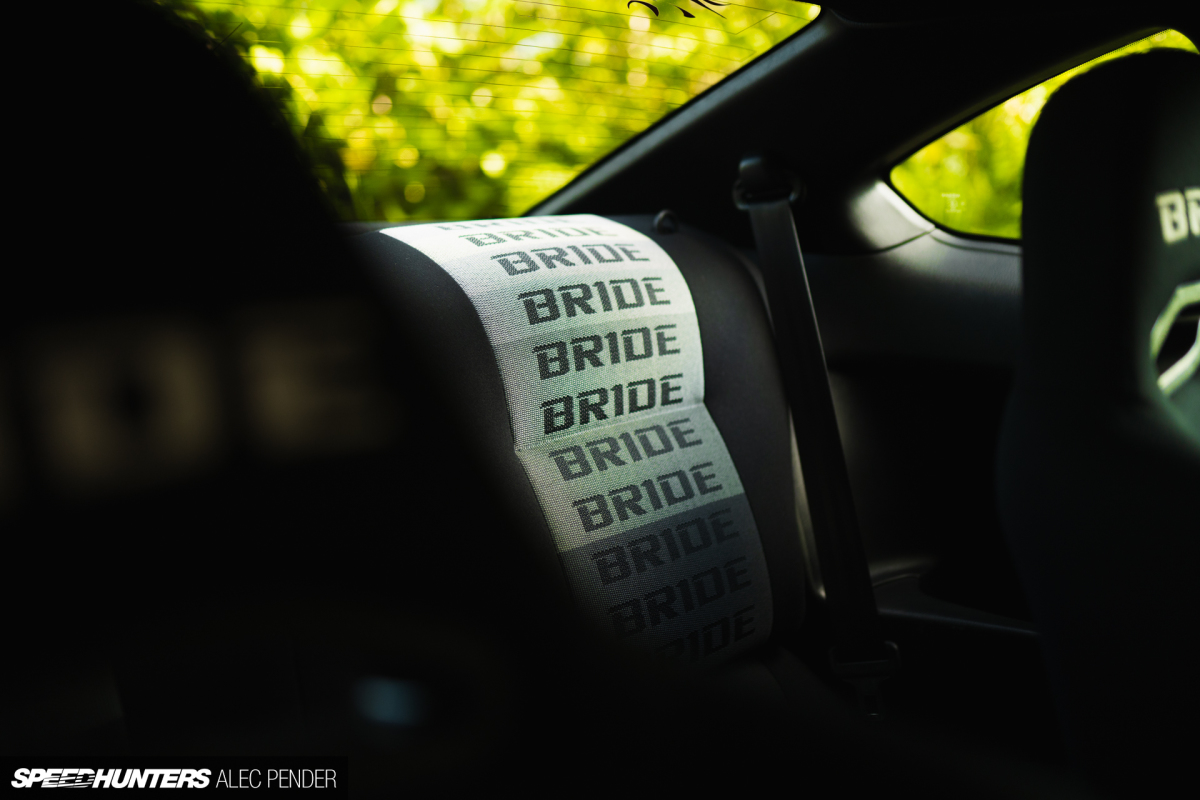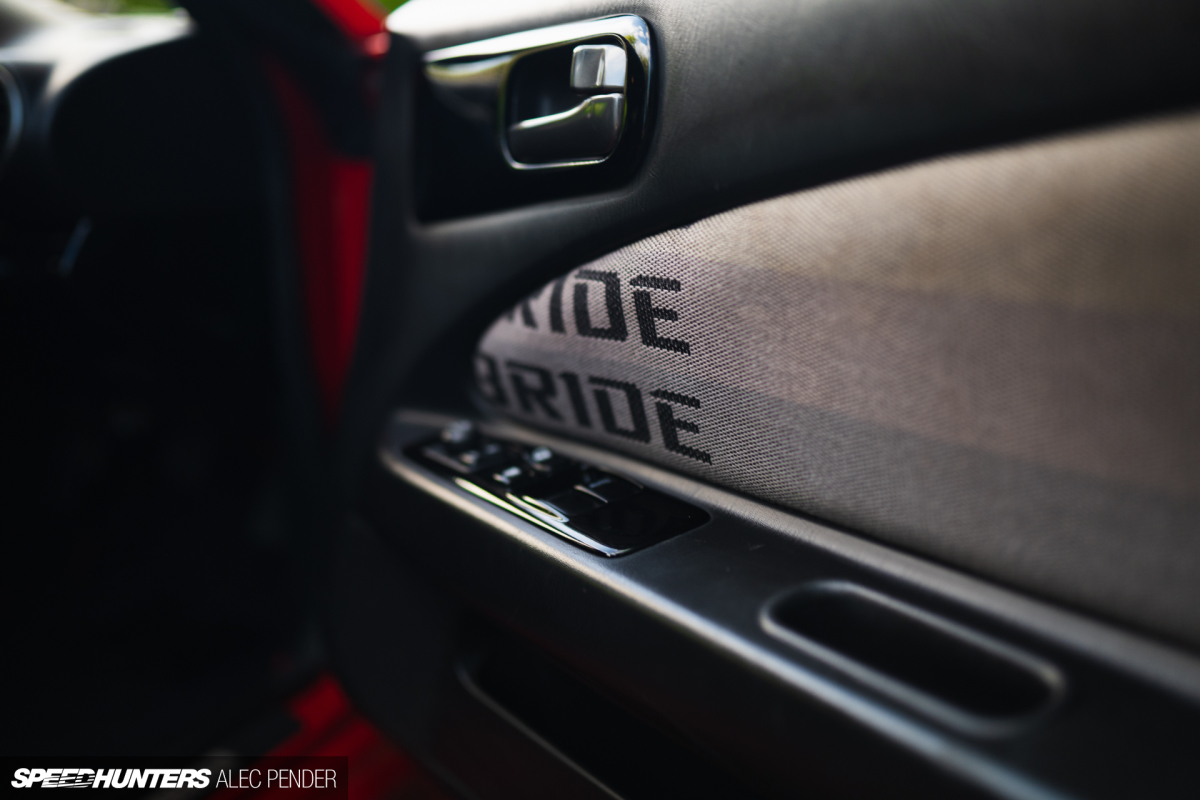‘Timeless’ is a word that’s commonly thrown around in the car world. Often, it’s used to identify cars that came to exist as a result of the golden era of Japanese tuning.
In saying this, it is quite uncommon for a car to have not just been considered timeless, but to have retained the modifications that gave it that very description, and to ultimately be considered a time capsule of the era in which it was conceived. But Nobuteru Taniguchi’s ex-personal S15 Nissan Silvia is just that.
Until recently, many of the cars that would fit the above criteria have been left behind, either forgotten in the far corner of a garage or having just become low priority in a cluttered workshop. Some have been perfectly maintained, while others have been neglected.
Fortunately, as the Japanese drifting world has embraced its roots, the importance of many of these cars has risen. And that’s meant that chance encounters with iconic 2000s tuning cars are now becoming increasingly common.
I was lucky enough to catch this particular car at Ebisu Circuit, where it’s currently looked after by Power Vehicles ahead of being shipped to the US to join the ‘JDM Supreme’ collection.
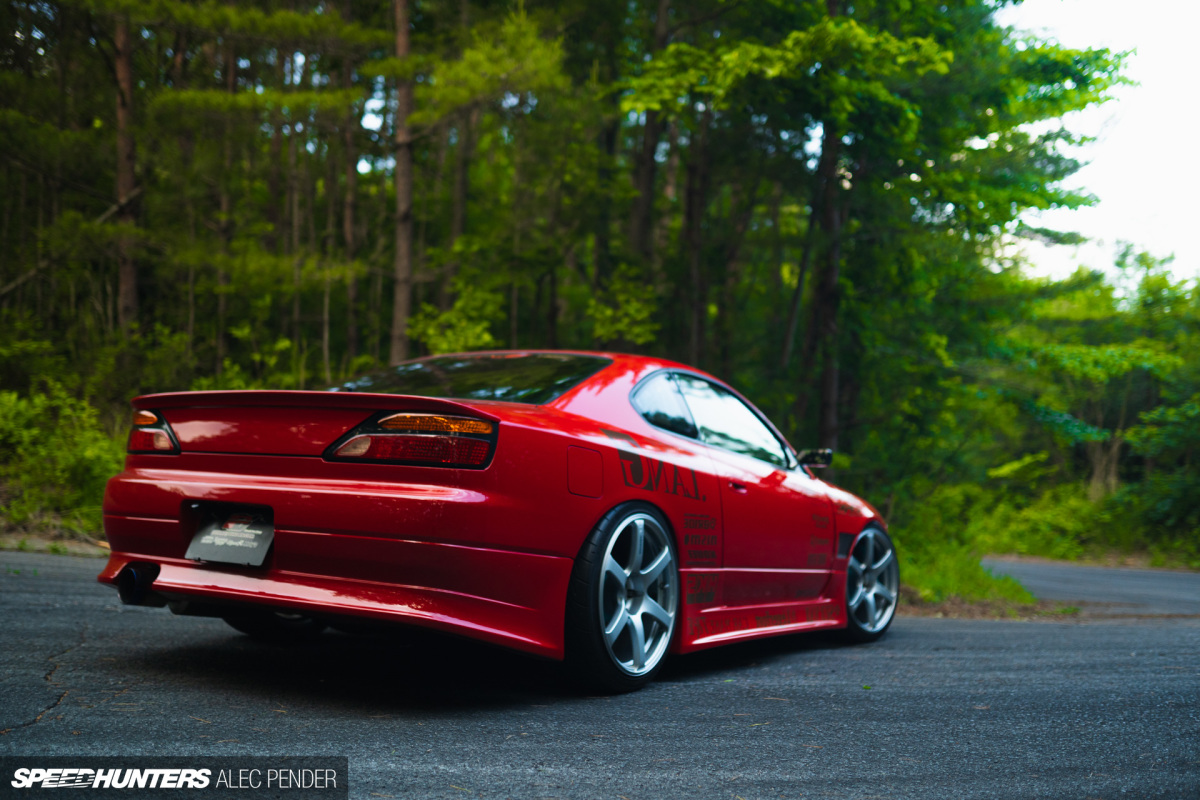
To many D1 Grand Prix purists, Taniguchi-san’s S15 Silvia represents a golden era of drifting. A time when his style, driving prowess and the tuning performance available manifested into one of the most significant S15 Silvias of all time.
Whilst the influence of this car is not to be underestimated, few will know that the S15 went through several iterations before the ultimate spec you see on your screen today.
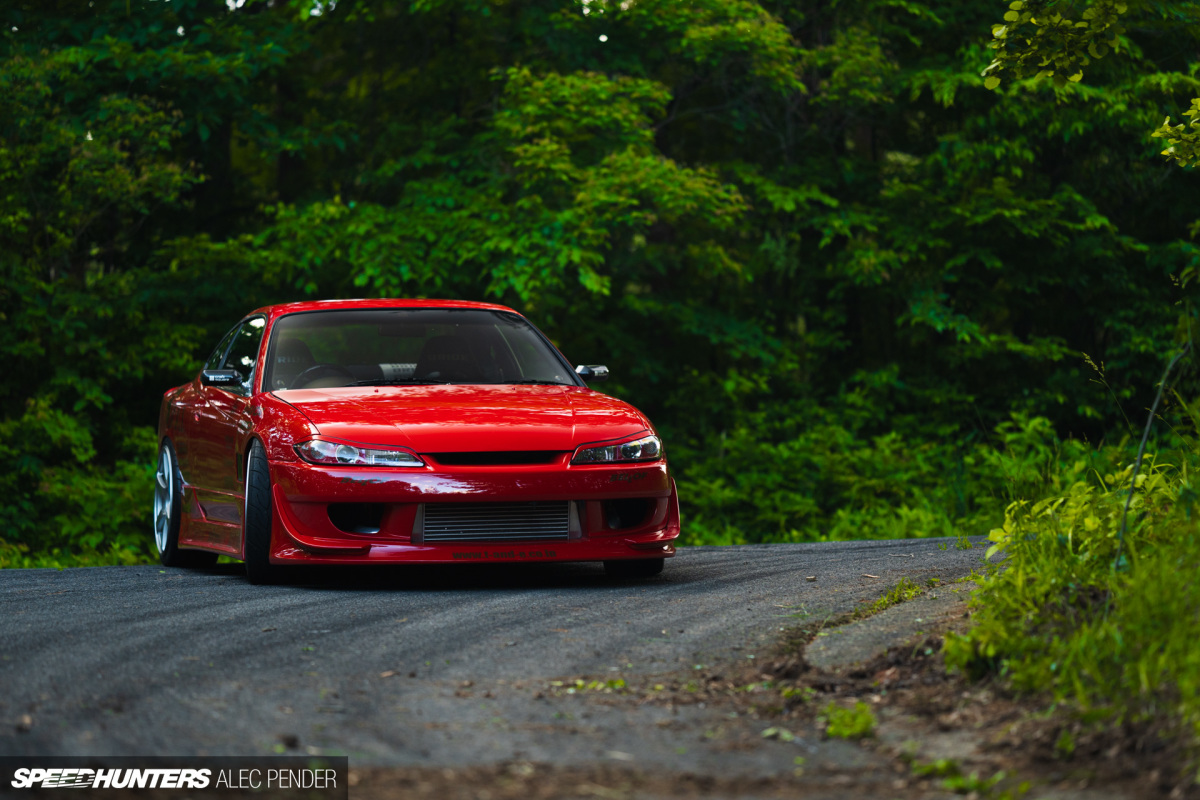
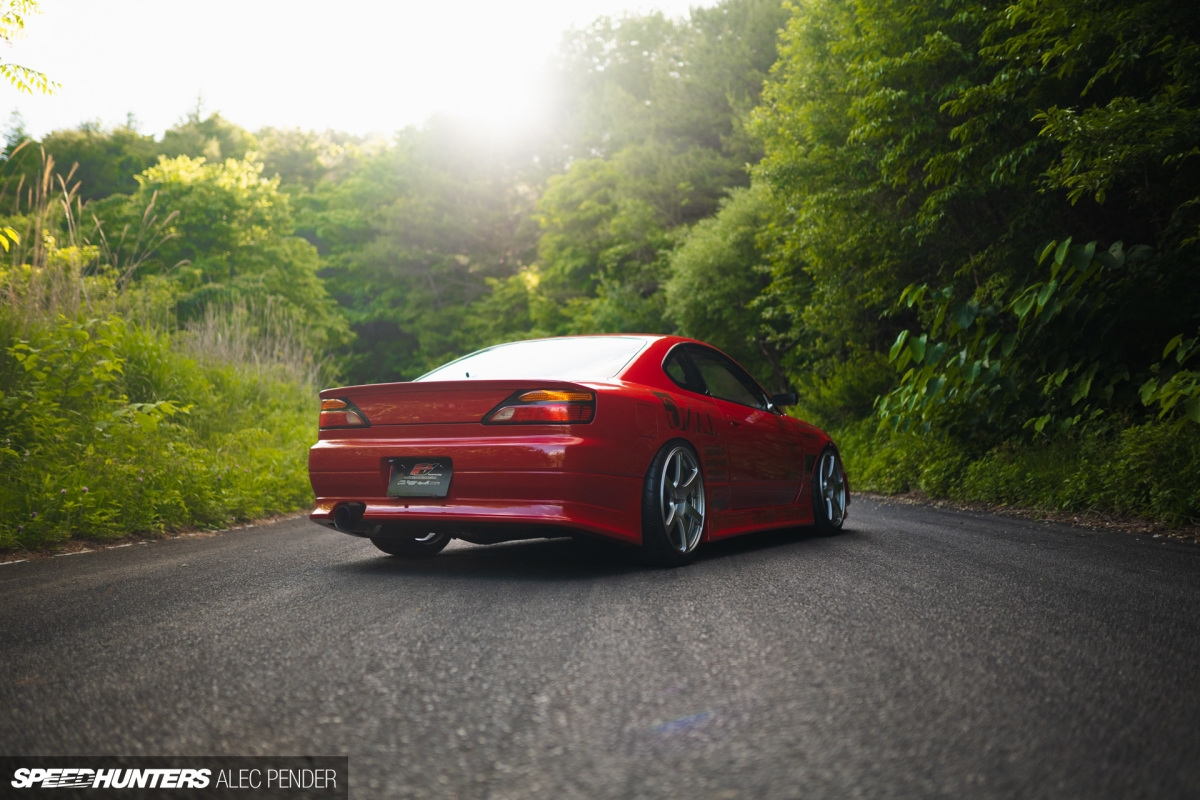
The S15 began as an EV1 Lightning Yellow Spec R and was originally a Kei Office demo car before being sold off for use by Taniguchi-san and Car Make T&E. The fitment of a T&E Original Aero bodykit and Ganador mirrors marked the beginning of the iconic Taniguchi style.
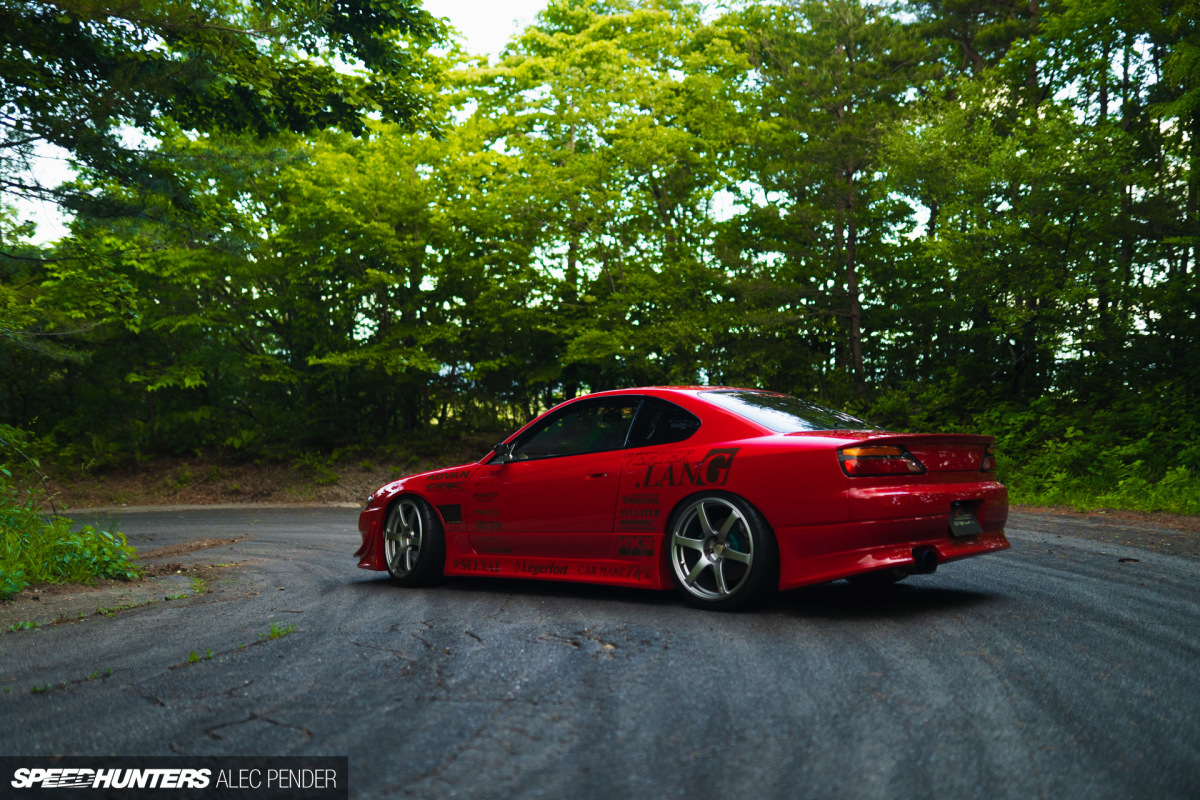
At the 2001 Tokyo Auto Salon, the car reappeared with a red open-door respray and the now famous red T&E headlight covers, a look that was finalised throughout the 2001 D1GP series with the addition of Craft Square side mirrors and a staggered 17-inch/18-inch set of AVS Model 5 wheels. Performance was handled by a combination of HKS, Nismo and ORC engine and drivetrain products, whilst the suspension and braking consisted of HKS coilovers and Swift springs, with a full JIC adjustable arm set and Project Mu brakes.
Ultimately, Taniguchi-san ended up winning the first D1 Grand Prix professional drifting championship in this very car.
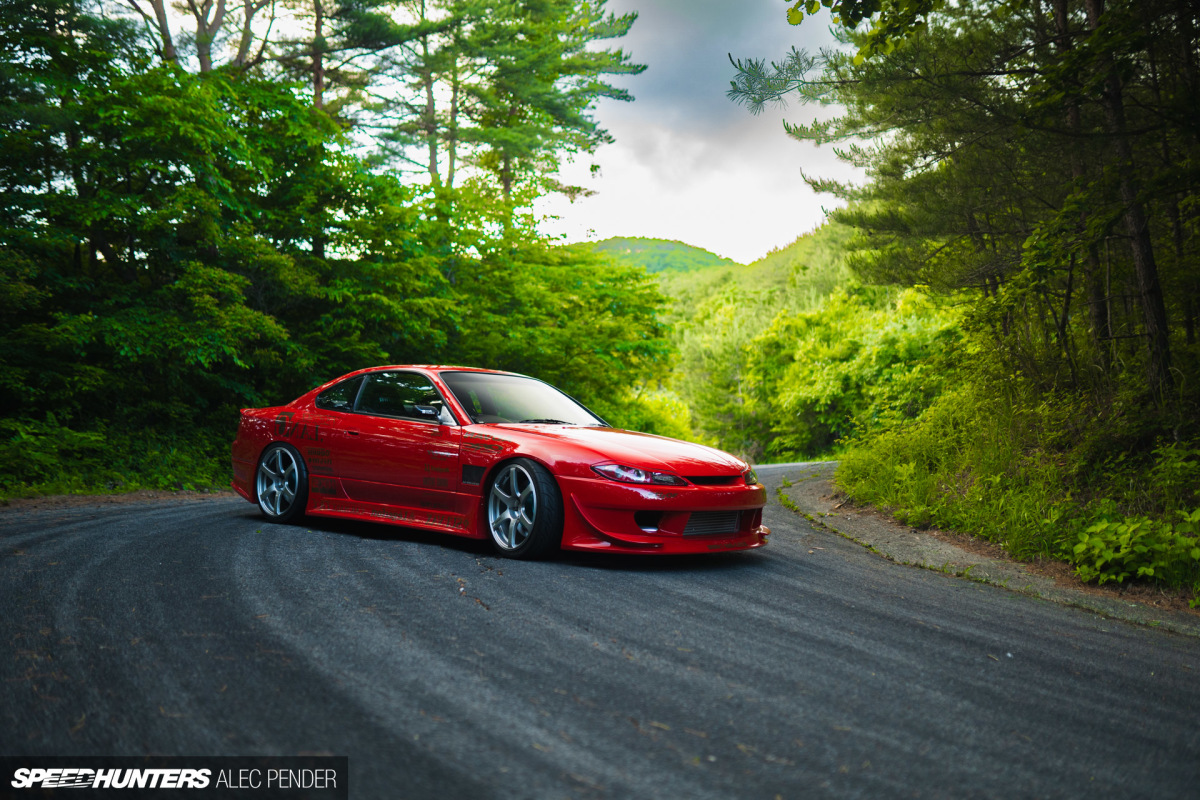
After the 2001 D1GP win, the Silvia was retired from track use and served as a more demo-oriented car for T&E, HKS, Yokohama Wheel (and in more recent years, Yashio Factory). The exterior received a once over, with new red paint to completely hide the original EV1 yellow. A more aggressive T&E Vertex Lang bodykit was also fitted, whilst updated 19-inch Yokohama AVS Model T6 wheels – 19×9.5-inch front and 19×10.5-inch rear – completed the look. Additionally, a set of red eyelids on the headlights, a low boot wing and T&E LEDs were introduced.
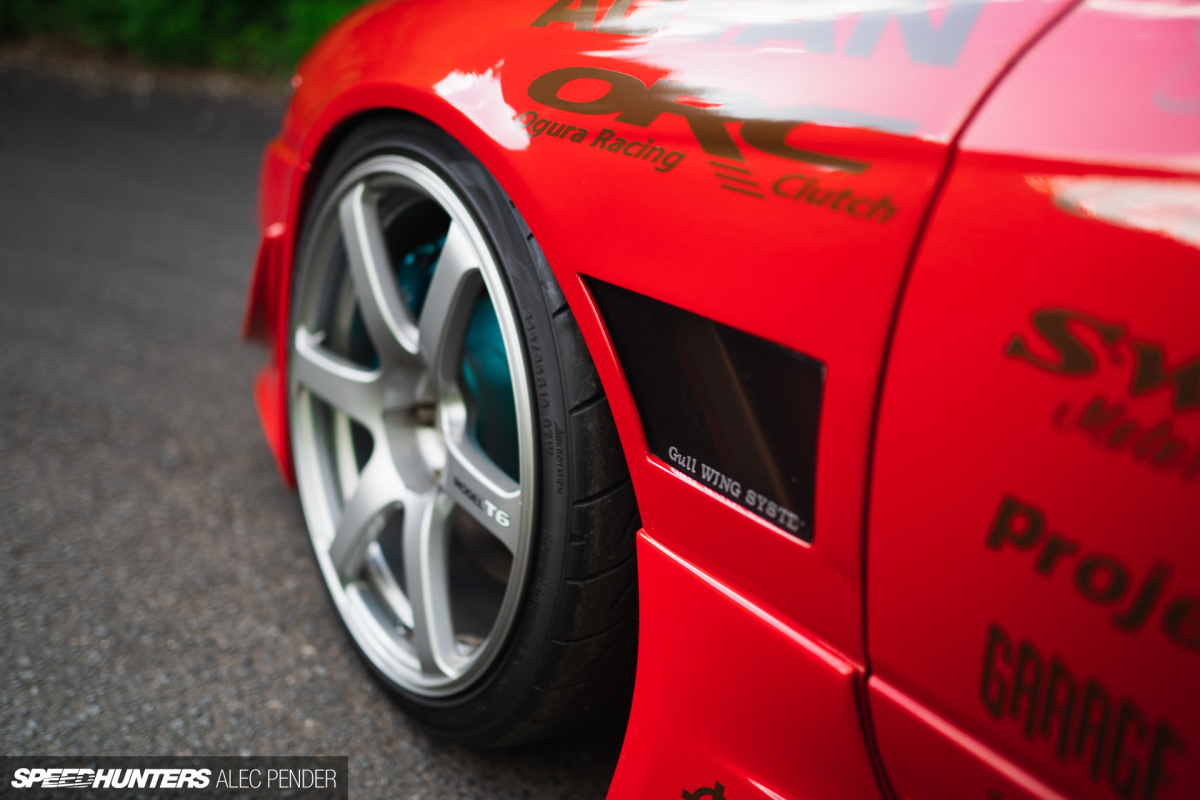
In true early-2000s custom car style, the Silvia was also fitted with a Lamborghini-style scissor door system. While it no longer has these doors, the legacy is still on display on the front fenders, much like the rest of the livery that highlights the sponsors involved.
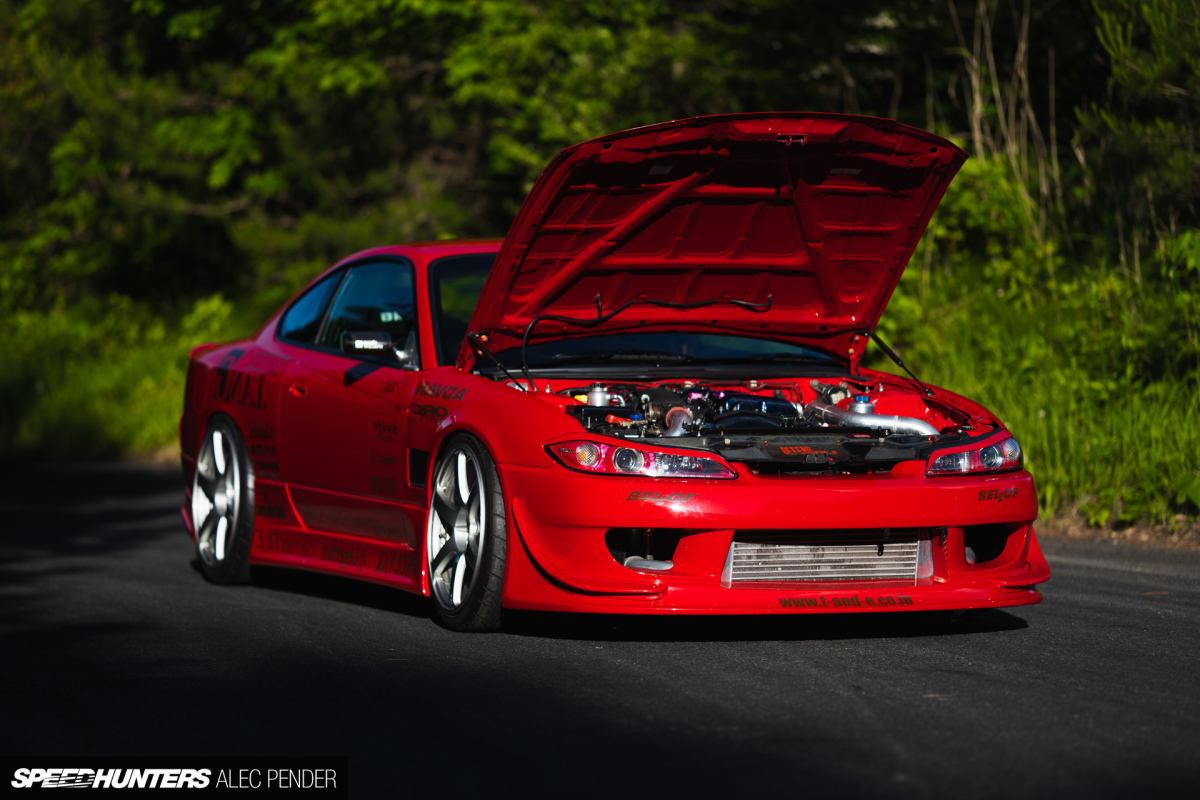
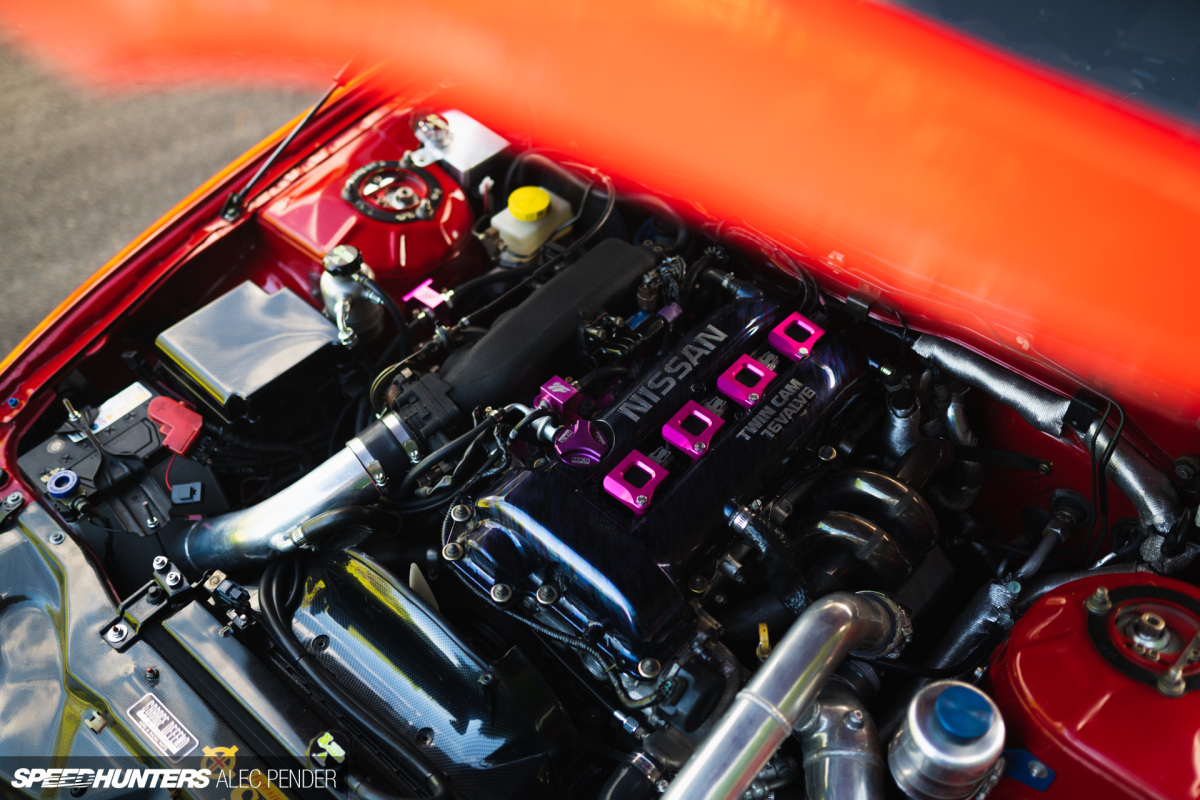
Given Taniguchi-san’s long-time partnership with HKS, it comes as no surprise to find a perfectly finished engine bay that host a collection of excellent HKS parts. The 2.1L stroker SR20DET features HKS 256- and 264-degree camshafts and reinforced valve springs, and an HKS GTIII-RS turbo hung from a Yashio Factory exhaust manifold. There’s also an HKS intake and large HKS front-mounted intercooler, plus a T&E titanium Legerfort exhaust. The ignition system has recently been replaced with R35 coil packs on top of an airflow upgrade, both courtesy of Yashio Factory.
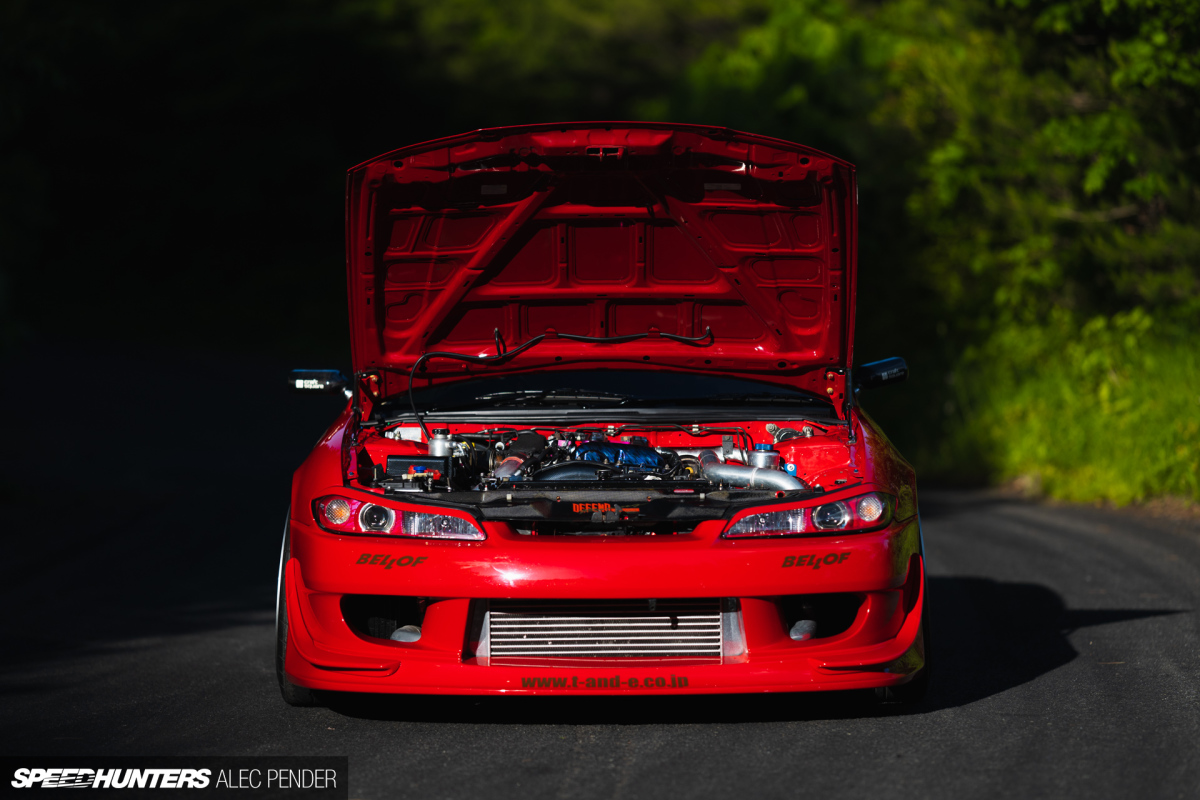
The result is a very healthy 430 horsepower, which is sent to the rear wheels through a combination of a Nismo-reinforced 6-speed manual gearbox, Nismo Coppermix clutch and Nismo LSD.
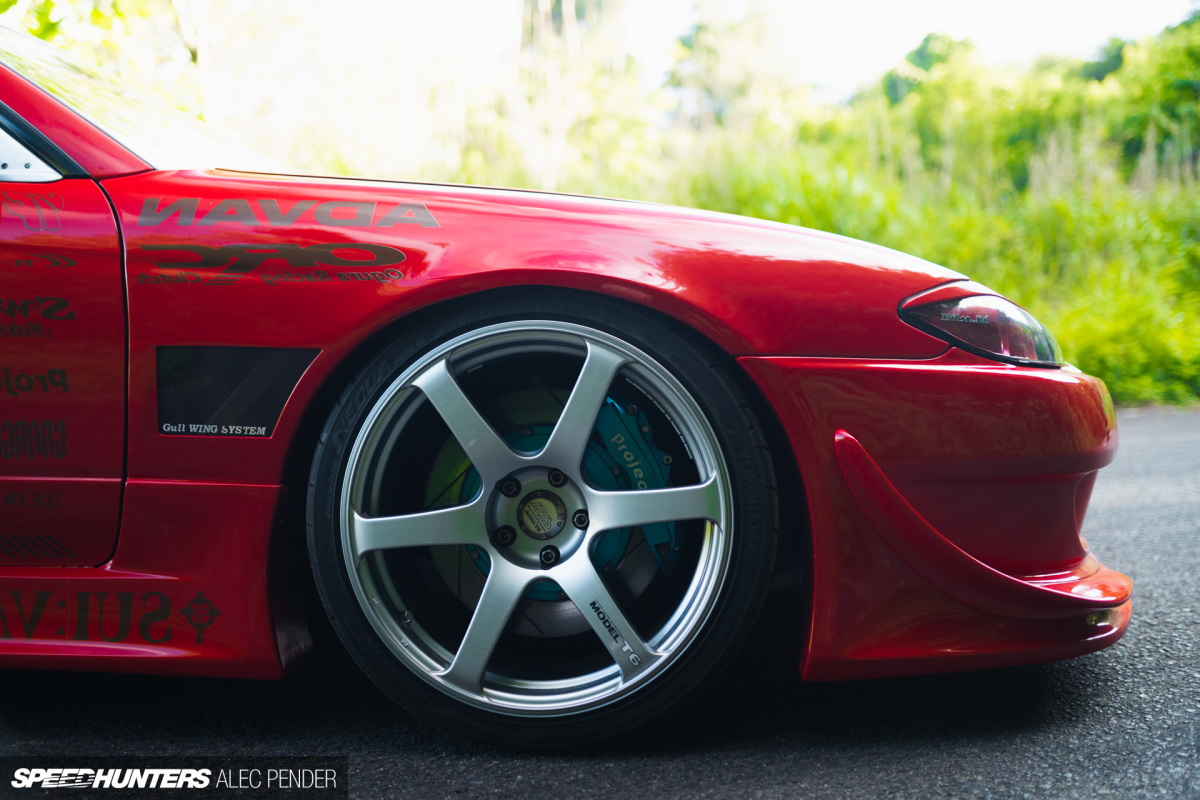
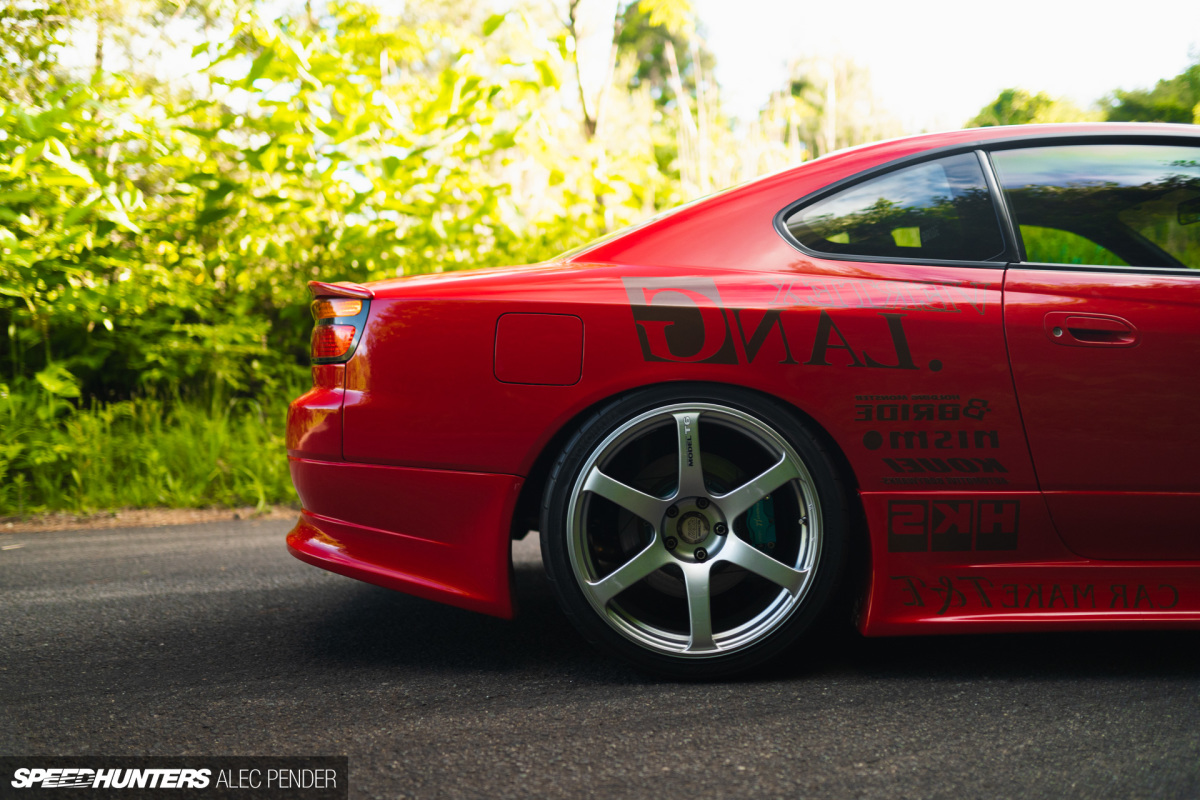
Road presence is achieved through a low ride height and aggressive negative camber in both the front and rear. The S15 sits on HKS Hipermax coilovers and Swift springs (10kg front, 7kg rear), working in conjunction with Ikeya Formula arms front and rear. Stopping power is handled by an almost overkill Project Mu brake upgrade featuring 6-piston callipers up front.
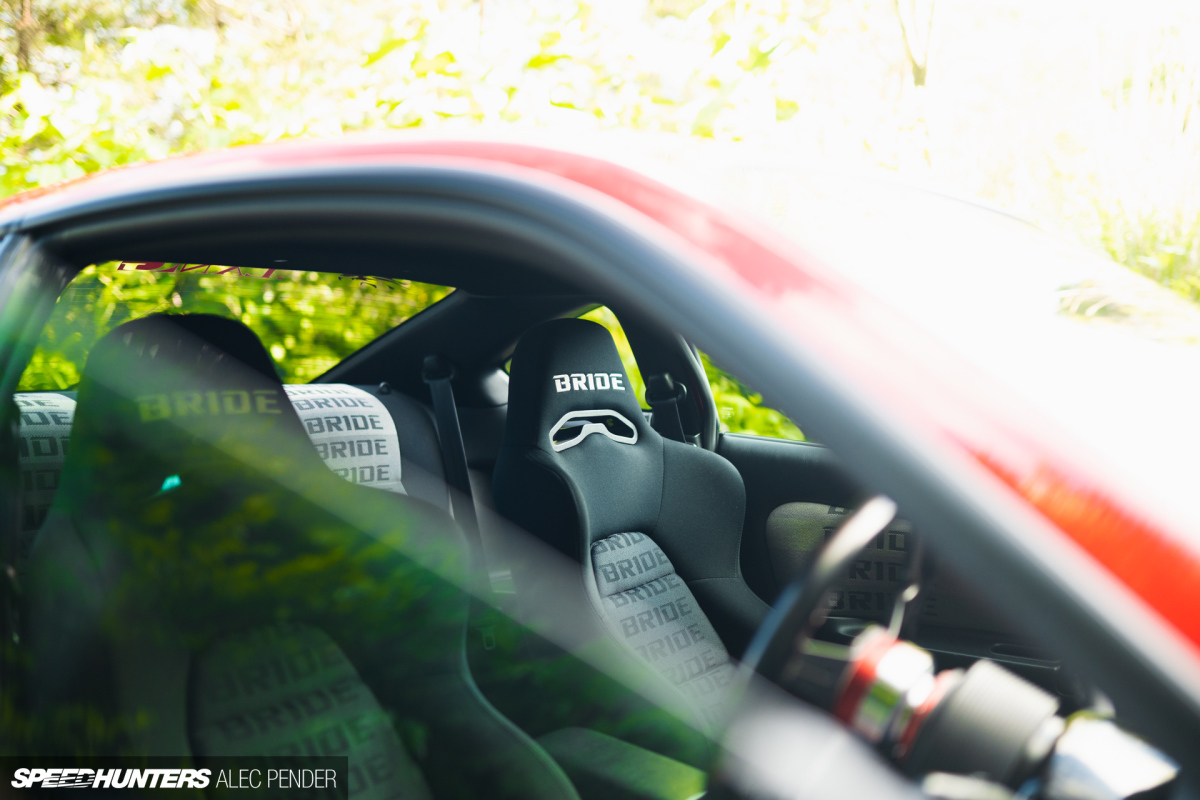
Despite once being a competition drift car, the cabin is immaculately finished with Bride gradation fabric from the door cards to the rear seats, completed by two black Bride Brix II recliners.
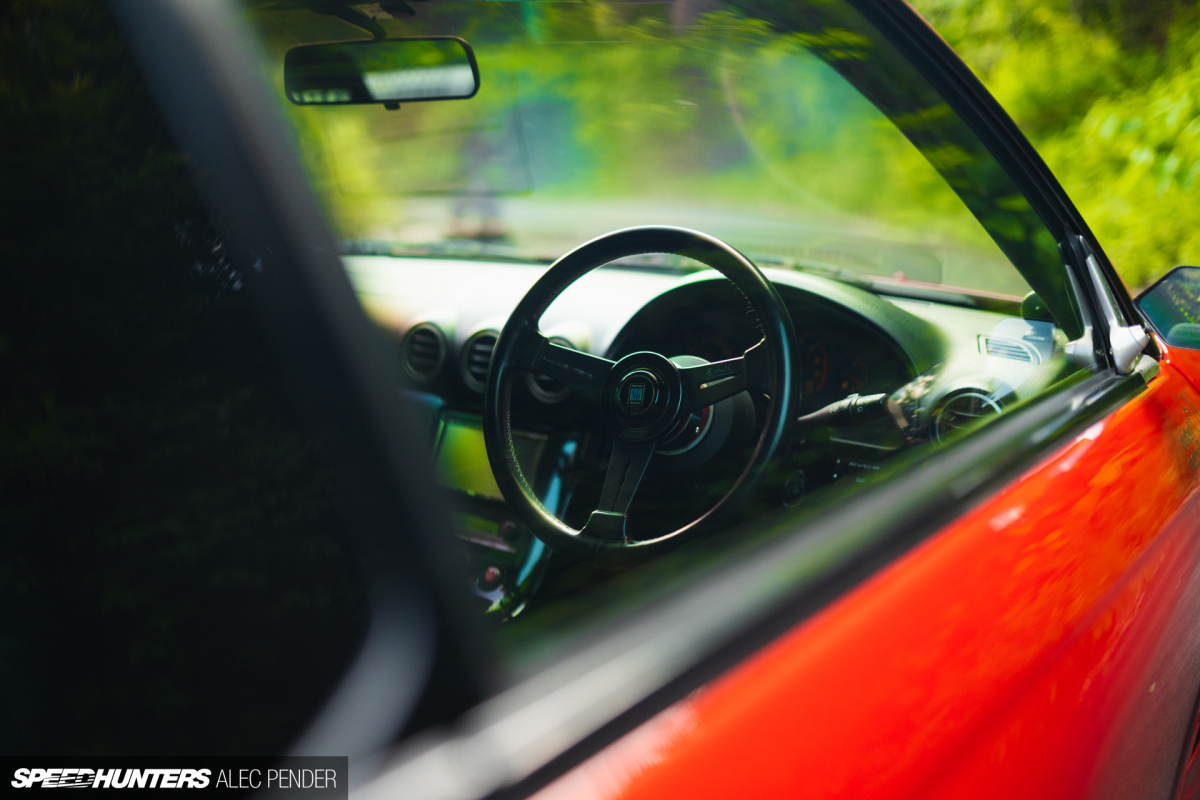
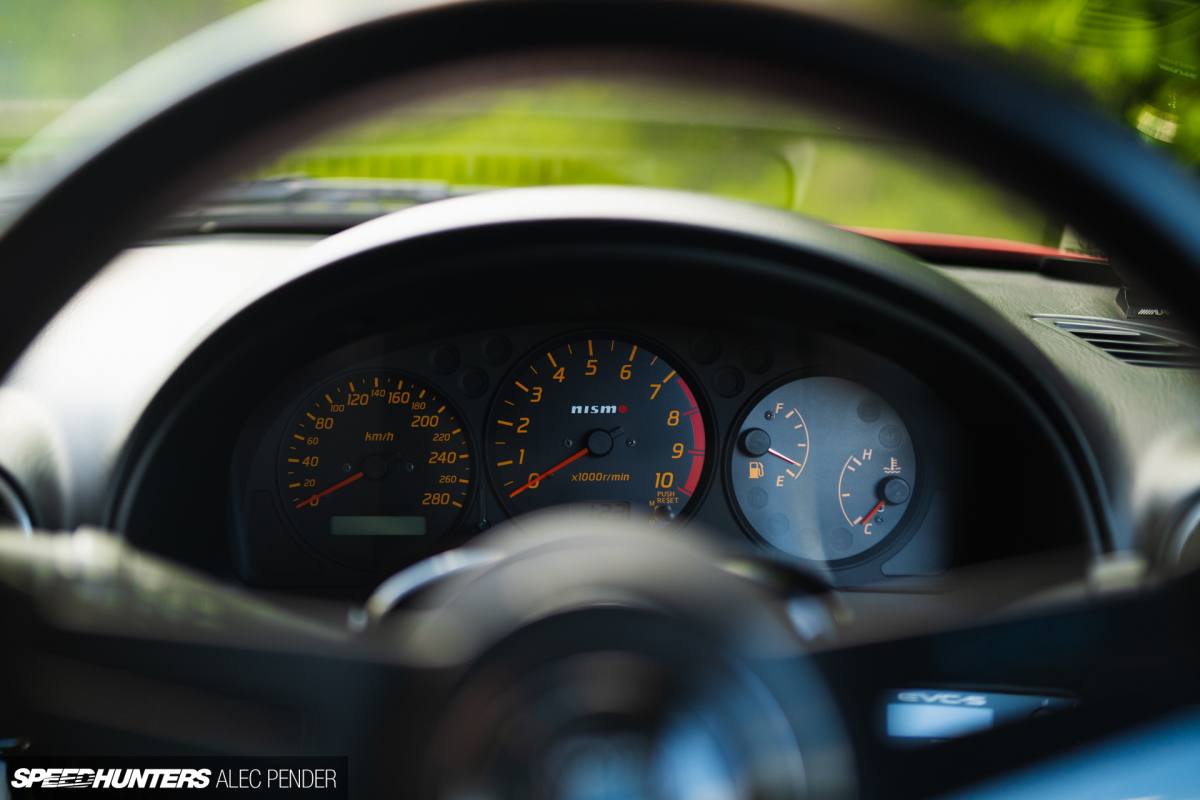
There are minimal gadgets and gauges to be found, rather just a tasteful few, including a Nismo combination meter and an HKS EVC-S boost controller. Some of the interior’s most striking features are the small details – the carbon trims on the door handles, the black and red T&E floor mats and shifter, the metallic black lower dash portion, and the red Vertex shift sticker in the place of the cigarette lighter. Of course, the look is completed with a black NOB-branded Nardi steering wheel.
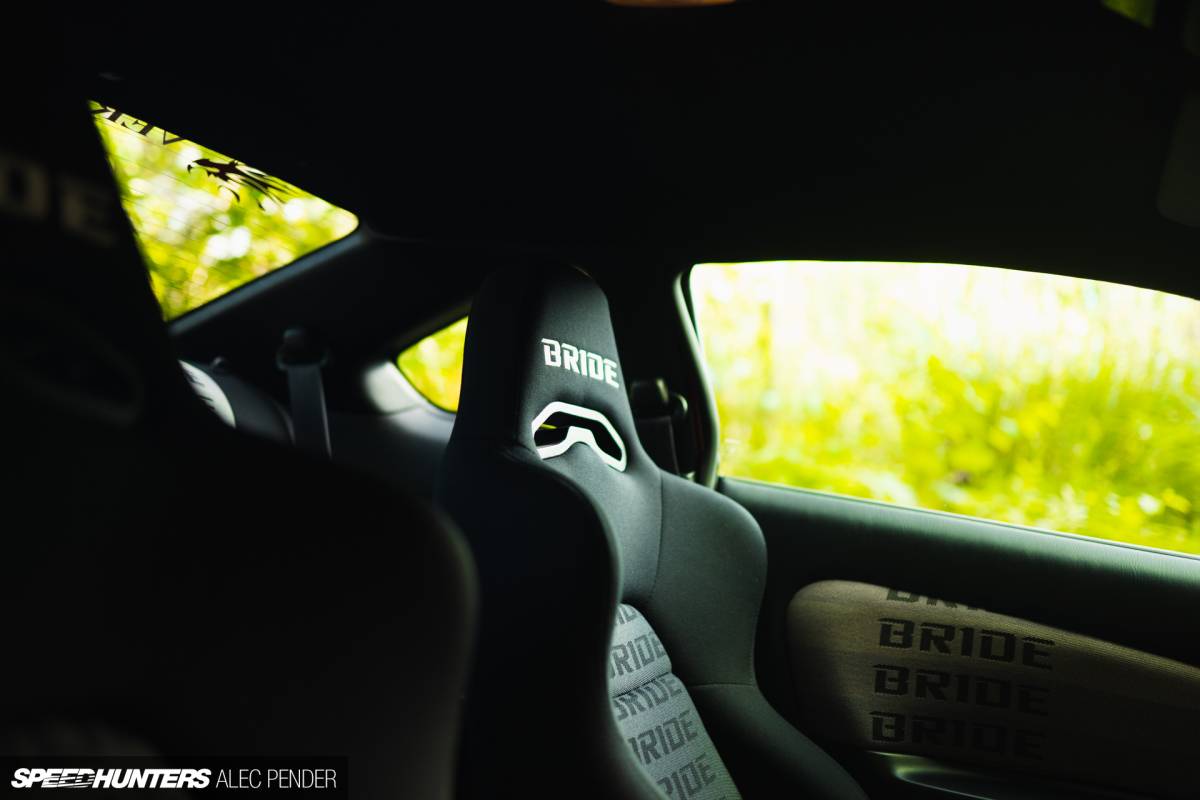
The cabin is a special place. It’s simple, yet still oriented for driver enjoyment.
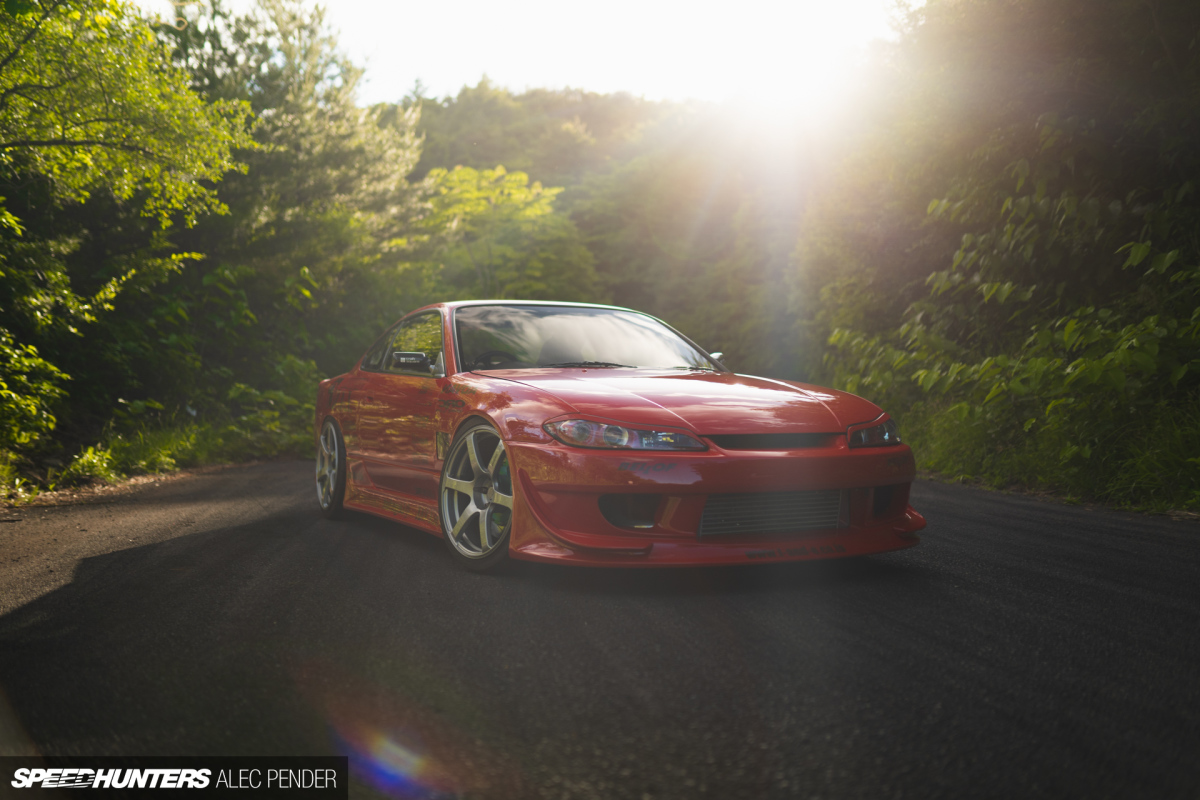
When the Silvia was sold at auction earlier this year, Nobuteru Taniguchi commented on the new owner’s celebratory post. His words? “Thanks for buying it. I would be happy if you could keep the current style”. After spending an afternoon with this iconic Nissan Silvia, I really hope that happens too.
Alec Pender
Instagram: noplansco

